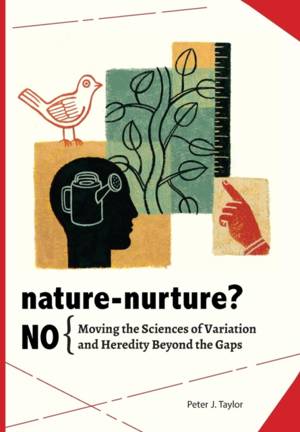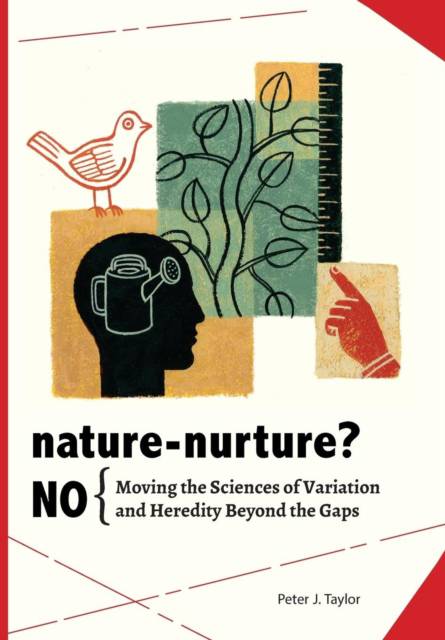
- Afhalen na 1 uur in een winkel met voorraad
- Gratis thuislevering in België vanaf € 30
- Ruim aanbod met 7 miljoen producten
- Afhalen na 1 uur in een winkel met voorraad
- Gratis thuislevering in België vanaf € 30
- Ruim aanbod met 7 miljoen producten
Zoeken
Nature-Nurture? No
Moving the Sciences of Variation and Heredity Beyond the Gaps
Peter John Taylor
Paperback | Engels
€ 29,95
+ 59 punten
Uitvoering
Omschrijving
Almost every day we hear that some trait "has a strong genetic basis" or "of course it is a combination of genes and environment, but the hereditary component is sizeable." To say No to Nature-Nurture is to reject this relative weighting of heredity and environment. This book shows that partitioning the variation observed for any trait into a heritability fraction and other components provides little clear or useful information about the genetic and environmental influences. A key move this book makes is to distill the issues into eight conceptual and methodological gaps that need attention. Some gaps should be kept open; others should be bridged-or the difficulty of doing so should be conceded. Previous researchers and commentators have either not acknowledged all the gaps, not developed the appropriate responses, or not consistently sustained their responses. Indeed, despite decades of contributions to nature-nurture debates, some fundamental problems in the relevant sciences have been overlooked. When all the gaps are given proper attention, the limitations of human heritability studies become clear. They do not provide a reliable basis for genetic research that seeks to identify the molecular variants associated with trait variation, for assertions that genetic differences in many traits come, over people's lifetimes, to eclipse environmental differences and that the search for environmental influences and corresponding social policies is unwarranted, or for sociological research that focuses on differences in the experiences of members of the same family. Saying No is saying Yes to interesting scientific and policy questions about heredity and variation. To move beyond the gaps is to make space for fresh inquiries in a range of areas: in various sciences, from genetics and molecular biology to epidemiology and agricultural breeding; in history, philosophy, sociology, and politics of the life and social sciences; and in engagement of the public in discussion of developments in science.
Specificaties
Betrokkenen
- Auteur(s):
- Uitgeverij:
Inhoud
- Aantal bladzijden:
- 204
- Taal:
- Engels
Eigenschappen
- Productcode (EAN):
- 9780984921645
- Verschijningsdatum:
- 14/08/2014
- Uitvoering:
- Paperback
- Formaat:
- Trade paperback (VS)
- Afmetingen:
- 170 mm x 244 mm
- Gewicht:
- 331 g

Alleen bij Standaard Boekhandel
+ 59 punten op je klantenkaart van Standaard Boekhandel
Beoordelingen
We publiceren alleen reviews die voldoen aan de voorwaarden voor reviews. Bekijk onze voorwaarden voor reviews.











